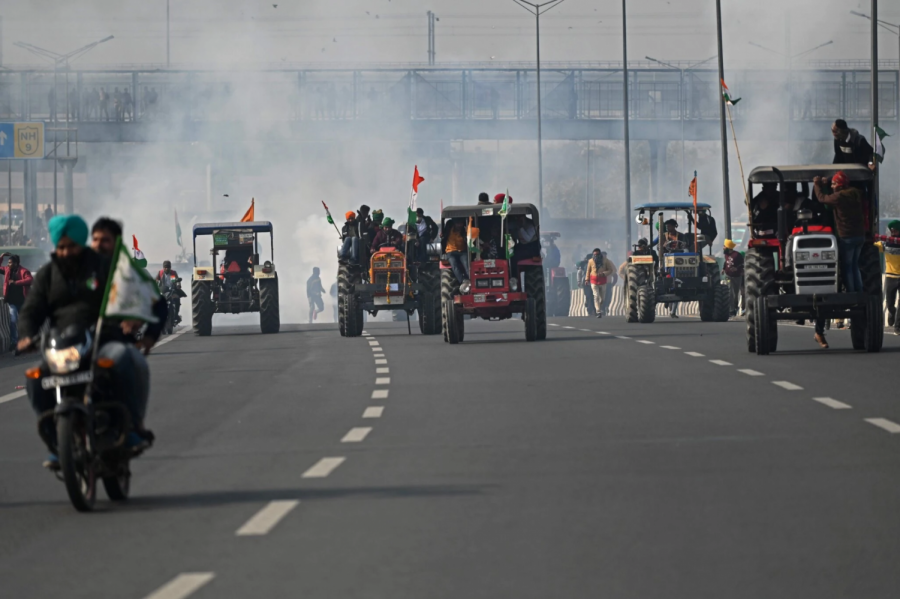The Largest Mass Protest: The Farmer’s Protest
April 30, 2021
Over the past several months, an array of Indian farmers largely from the Punjab and Haryana regions have been protesting for proper protection of their agriculture rights. These farmers are part of a Kissan farmer’s union. This protest originally started in India but these farmers have gained support from the United States, Australia, Great Britain, and Canada. The strike began because many believed that the new farm laws instituted would negatively impact their business and market, which were passed without any prior knowledge of the farmers. As the protest progresses, research shows the many reasons why these legislations have affected the Kissan farmers.
As this protest has grown, it has reached many parts of the US, including New Jersey. In January, dozens of New Jersey residents showed their support to these farmers by starting a parade of cars. The parade started in Central Jersey Sikh Association (CJSA) Gurdwara and traveled to a few other nearby significant spots, and then finally ended back where they started. A handful of community leaders joined and helped support these farmers in their request of getting these unjust laws repealed. Chris Ciaccio, one of the Robbinsville Township Council members that attended the rally, said, “Farmers are the backbone of every country whether it’s India or America. I belong to a farming background myself and I am here to support the farmer rally.” Ciaccio’s thoughts were very similar to others who attended.
Additionally, Kissan farmers are fighting because they believe that these “anti-farmer” laws are unfair and harmful to not only themselves but also their food production. For many farmers, the sales of their crops are the only way they stay afloat, hence why these laws are so detrimental to their survival. Furthermore, the farmers have said that these new laws will also make it effortless for large corporations to exploit the agriculture workers of India’s workforce. This exploitation may make it very challenging for farmers to survive, which is why they believe it is so important and crucial that they continue their fight.
This ongoing protest began peacefully but has led to violent actions once more drastic measures were taken. Tractors were used to tear apart barricades, some challenged government forces, tear gas was in usage, and internet access was blocked for some. Indian government also shut down the social media accounts of dozens of activists, arrested certain journalists who were covering this protest, and initiated violence against protesters, including someone from New Jersey. In late January, one person had passed away due to the heightened violence, and 86 members of The Delhi police force were wounded. It was at this point that the farmers realized that the chaos that they created could have either a positive or negative effect on their demands.
However, it has been said by the government that these reforms are helping bring much-needed change within the agriculture community. With the involvement of several states, countries, leaders, etc, these lawmakers are becoming aware of the harm their laws are instilling into their farmers. According to multiple sources, if the government does not concede to these workers’ wishes, it will only grow worse from here, which is why it is very important to divert to a peaceful protest instead of a chaotic one.
Lastly, as mentioned above, Central Jersey has shown their support for this reform by organizing many protests and parades. Many of their communities’ leaders expressed their thoughts and opinions on this matter and dozens of residents are taking action. By India and numerous other countries speaking up and aiding the Kissan farmers in attaining their demands, the fight for farmers rights lives on.
